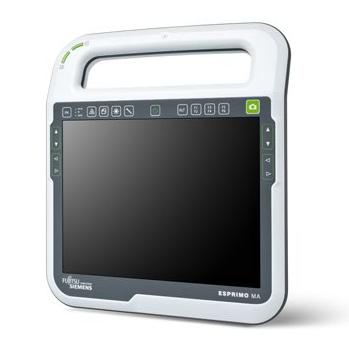Digital Angel Sells VeriChip Stake
Posted by Sam Churchill on November 13th, 2008Digital Angel, a leader in animal RFID and emergency identification solutions, announced today that it has entered into a set of agreements to sell its approximately 45% stake in VeriChip for about $1.57 million in cash.
 Digital Angel sold all of its VeriChip stock, approximately 5.4 million shares, to R&R Consulting Partners, a company controlled by Scott Silverman. Further details of the transactions are set forth in the Company’s Form 8-K filing.
Digital Angel sold all of its VeriChip stock, approximately 5.4 million shares, to R&R Consulting Partners, a company controlled by Scott Silverman. Further details of the transactions are set forth in the Company’s Form 8-K filing.
According to Joseph Grillo, Chief Executive Officer of Digital Angel, “The completion of these transactions represents a major milestone for Digital Angel, enabling us to monetize our VeriChip holdings and to entirely divest ourselves of participation in a development stage business that, we believe, was going to require substantial investment to achieve success. We remain committed to our two core businesses, Animal ID and Emergency ID, and we look forward to devoting all of our resources towards the growth of those businesses.”
![]() Digital Angel (wikipedia) makes pet RFID products using its patented, FDA-approved implantable microchip for livestock identification and tracking using visual and RFID ear tags as well as and GPS search and rescue gear for use on aircraft, ships and boats, and by adventure enthusiasts.
Digital Angel (wikipedia) makes pet RFID products using its patented, FDA-approved implantable microchip for livestock identification and tracking using visual and RFID ear tags as well as and GPS search and rescue gear for use on aircraft, ships and boats, and by adventure enthusiasts.
VeriChip (wikipedia) developed the world’s first and only patented, FDA-cleared, human-implantable RFID microchip. Destron Fearing initially developed the technology for the VeriChip.
 Destron Fearing, a subsidiary of Applied Digital Solutions, developed the human-implantable RFID microchip. It’s about twice the length of a grain of rice, and is typically implanted above the triceps area of an individual’s right arm. Once scanned at the proper frequency, the VeriChip responds with a unique 16 digit number which could be then linked with information about the user held on a database for identity verification, medical records access and other uses.
Destron Fearing, a subsidiary of Applied Digital Solutions, developed the human-implantable RFID microchip. It’s about twice the length of a grain of rice, and is typically implanted above the triceps area of an individual’s right arm. Once scanned at the proper frequency, the VeriChip responds with a unique 16 digit number which could be then linked with information about the user held on a database for identity verification, medical records access and other uses.
Contactless smart cards communicate with card readers through RFID induction. These cards require only close proximity to an antenna to complete a transaction. They are often used on mass transit systems, where smart cards can be used without even removing them from a wallet.
In related news, Fujitsu has announced a mobile medical companion, the touchscreen ESPRIMO MA Tablet PC. Fanless, and capable of being entirely sterilized, the ESPRIMO MA has a 10.4-inch display, integrated UMTS 3G and WiFi n, together with barcode and RFID readers.
It uses an Intel Atom processor and has a hot-swap battery bay capable of offering full-day power. As well as the data encryption, there’s also a physical lock which can fix the tablet into its docking station. An integrated digital camera, RFID transponder and Bluetooth round out the specs.
 Intel says it’s commited to medical technology with embedded hardware building blocks and an extensive software base. Their Intel Health Guide is a care management tool designed for health care professionals who manage patients with chronic conditions.
Intel says it’s commited to medical technology with embedded hardware building blocks and an extensive software base. Their Intel Health Guide is a care management tool designed for health care professionals who manage patients with chronic conditions.
In January, the Department of Homeland Security (DHS) released the “final rule” on REAL ID Act, describing the requirements and procedures for transforming state ID cards into REAL IDs with embedded RFID chips (realnightmare.org).
As far back as 2003, CASPIAN (Consumers Against Supermarket Privacy Invasion and Numbering) — along with the Privacy Rights Clearinghouse, the Electronic Privacy Information Center, the Electronic Frontier Foundation, the American Civil Liberties Union, and 40 other leading privacy and civil liberties advocates and organizations have condemned the tracking of human beings with RFID as inappropriate. Industry trades include: RFID News, RFID Journal and RFID.org.
source : dailywireless.org




No comments:
Post a Comment